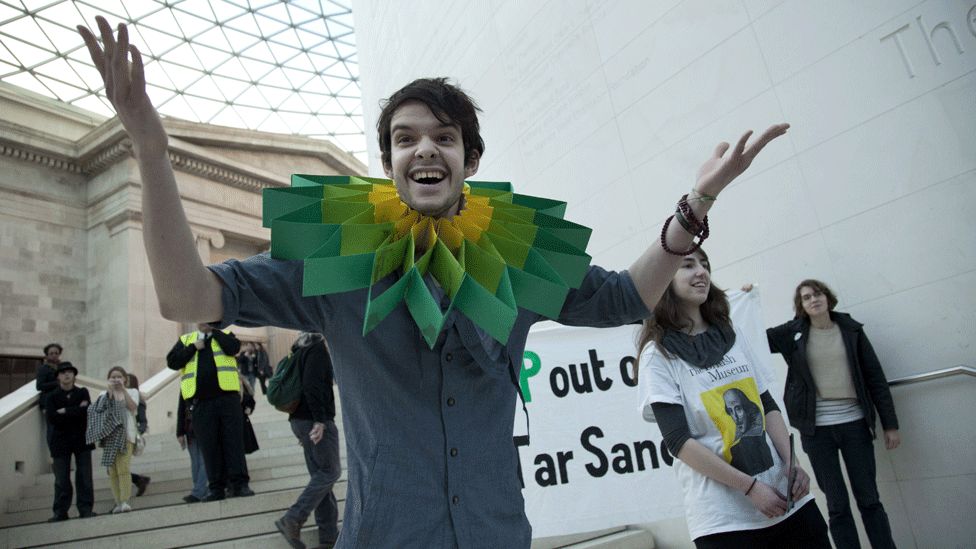Why BP rejection is giving the arts a headache
- Published

And so the Scottish National Portrait Gallery has now added its name to growing list of arts institutions rejecting BP's corporate sponsorship money. The gallery made the reason clear: it is addressing the climate emergency.
BP had hoped the cold shoulder treatment from the arts sector had ended with the Royal Shakespeare Company's recent announcement that it was cutting ties after several years of partnership. It was not to be.
Attention will now turn to the British Museum and the Royal Opera House to see if they too will withdraw from long-standing corporate partnerships with the oil giant (the National Portrait Gallery in London has dodged the issue for the time being by announcing it is closing for the next three years).
Externally, the public will be expecting all those arts institutions who have stated their commitment to becoming more environmentally responsible to undergo real and visible change in order to deliver on their promise.
Internally, there will be at least one employee feeling a little dispirited: the person(s) whose job it is to fundraise on behalf of the arts institution. It has never been an easy task, but it has become a whole lot harder in the past 12 months.
Typically, sport takes the lion's share of corporate sponsorship, with arts organisations feeding off any scraps of company cash that might be left over.
There is not a history of companies queuing around the block to financially support exhibitions and gallery refurbishments. It is a small pool in which fundraisers have to fish, and it's now in danger of evaporating altogether.
The public scrutiny museums, theatres, orchestras and other arts bodies now find themselves under is unprecedented. The effect is two-fold.
Firstly, corporate sponsorship deals nowadays must be able to withstand forensic examination by stakeholders and the media, which Turner Contemporary's deal with Stagecoach South East could not.
Secondly, the negativity surrounding arts sponsorship - from the Sackler Trust controversy to BAE Systems withdrawal from supporting the Great Exhibition of the North - is extremely off-putting for companies that might be thinking of entering the arts arena.
What has also become absolutely clear over the past 12 months is that arts organisations have to up their game when it comes to basic due diligence before accepting a sponsor's money.
It is no longer good enough to check the credentials of the sponsoring company. They now have to make sure the personal values of those who run and own it are compatible with their own charitable objectives.
A quick Google search won't do. Twitter feeds, Instagram posts and other platforms for public comment all have to be rigorously checked.
All of which means more work for already hard-pressed fundraising departments operating in arts institutions that are still feeling the chill wind of austerity. Theirs is a difficult and thankless job that has now become much, much harder.
Follow us on Facebook, or on Twitter @BBCNewsEnts. If you have a story suggestion email entertainment.news@bbc.co.uk.
- Published11 November 2019
- Published2 October 2019
- Published21 June 2019